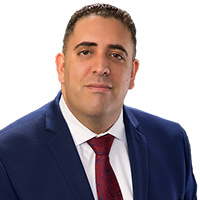Parcel Return Service White Collar Crime Lawyer, District of Columbia
Sponsored Law Firm
-
 x
x

Click For More Info:
-
The Law Offices of Richard L. Cooper, P.A.
848 Brickell Avenue Suite 800 Miami, FL 33131» view mapDWI/DUI, Drug Trafficking, Felony Nationally Ranked Top 40 Under 40
With Richard L. Cooper you can expect a trusted confidant who will work diligently to fully understand your case and determine a road map to help you regain control of your life.
800-756-2781
Farral Ashley Haber
Criminal, RICO Act, White Collar Crime, Federal, Health Care
Farral Haber is a lawyer in Washington D.C. who focuses on white collar crimes. She has tried cases involving healthcare, fraud, embezzlement, a... (more)
Rammy Barbari
Criminal, White Collar Crime
Rammy G. Barbari brings significant professional experience in the legal, international business, and government sectors to Price Benowitz. He is barr... (more)
Leslie McAdoo
Government Agencies, Corporate, White Collar Crime, Litigation
Status: In Good Standing
Shawn D. Bryant
Pharmaceutical Product, Government Contract, White Collar Crime, Products Liability
Status: In Good Standing
David F Weeda
Chemical & Cosmetics, Food Products, Pharmaceutical Product, White Collar Crime
Status: Deceased Licensed: 40 Years
Philip Andonian
Criminal, Medical Malpractice, White Collar Crime, Civil Rights
Status: In Good Standing Licensed: 22 Years
Jason Kendall Clark
Litigation, Aviation, White Collar Crime, Constitutional Law
Status: In Good Standing Licensed: 15 Years
Matthew John Gardner
Private Schools, Government, White Collar Crime, Civil Rights
Status: In Good Standing Licensed: 22 Years

 Richard L. Cooper Miami, FL
Richard L. Cooper Miami, FL AboutMiami Attorney at Law
AboutMiami Attorney at Law ServicesCriminal Defense
ServicesCriminal Defense


